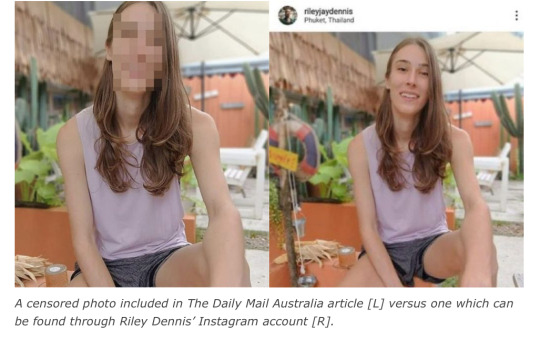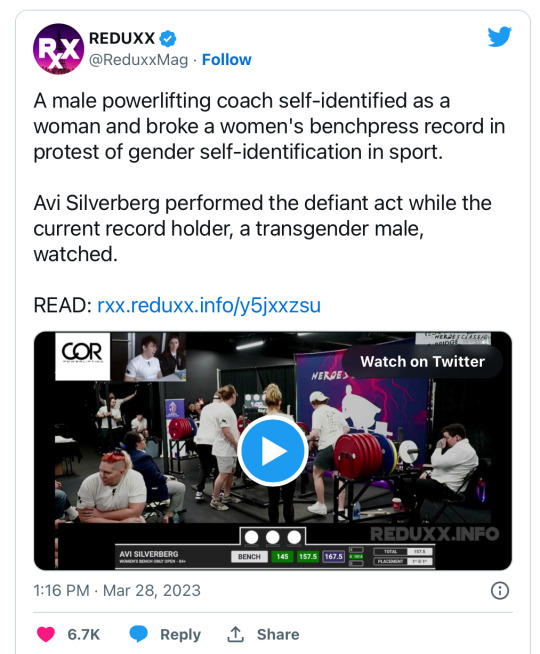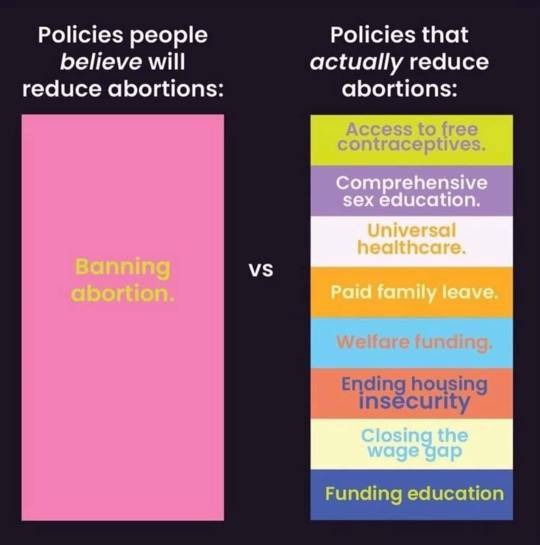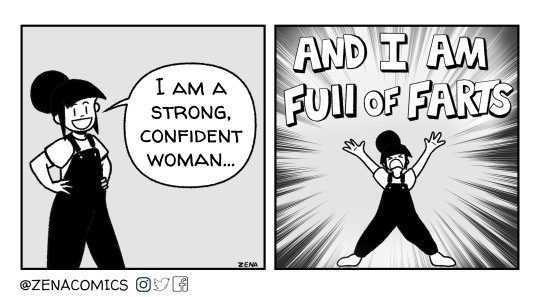#everyday feminism
Text
Content Warning: The following post contains material that may be triggering for sexually entitled men. It contains strong and sometimes challenging depictions of male inadequacy and female suffering and is intended for mature audiences only.
Since the beginning of time, men have been programmed to seek out the most orgasms possible with the least amount of effort. Giving them 24/7 access to an electronic rolodex has been a complete nightmare for women. Men treat us like vending machines; put in the least amount of effort and expect sex to come out. Even the "decent" ones are human participation awards suffering from serious delusions of adequacy. And the rest have the communication skills of an alarm clock and the desirability of an onion peel. Their ambition far outweighs their dating skills and no amount of rejection will wake-them-the-fuck-up. As far as effort goes, men are still a notch above sticking their dick in a vacuum.
#everyday feminism#feminism#why we need feminism#male entitlement#sex based oppression#gender equality#male privilege
134 notes
·
View notes
Text
mood:

#ofmd#our flag means death#pirate queen#zheng yi sao#queer#gay#lgbtqia#lgbt#tv shows#current mood#mood#everyday feminism
131 notes
·
View notes
Note
If JD wins, do you think the MSM will finally acknowledge that they were wrong or keep trying to spin it as a loss for women and #MeToo?
Let me start by giving you some statistics:
In the UK, approximately 1 in 3 men are victims of domestic abuse.
Only 26% of domestic abuse crimes recorded by police were committed against men.
Only 4.4% of male victims have been able to successfully access help.
In the US, approximately 1 in 10 men are victims of domestic abuse. Nearly a quarter of men across the US have reported some form of domestic violence in their lifetime.
On the whole, law enforcement officers do not take these allegations seriously due to gender stereotypes. Stereotypes that are perpetuated by the MSM. How often do we see articles focusing on male victims? How many news reports? The MSM thrives on sensationalism, gossip and scaremongering. It recycles stories and feeds into society's widespread idea that men cannot be victims because they're too strong - men can't be afraid, men must be feared.
Of course, this does not in any way dismiss the countless men in positions of power who abuse women. Every woman has a friend or relative who has experienced some form of sexual violence. We're still afraid to walk alone at night. To buy a drink in a bar. To say no to a date. This needs to change. Society needs to change. The #MeToo movement is just the beginning. The problem, however, is that over time, internet culture has warped it into a tool for faux/performative feminism.
Depp v Heard is a prime example of that. I've seen many women post outcries on social media that this case will 'set women back'. The MSM echoes this sentiment - if you don't believe Amber Heard, you aren't a feminist. You're silencing victims. You're stopping justice from prevailing. This is absolutely untrue. I'm sure the MSM will, at least for a while, continue to spin the narrative that this case has somehow damaged the #MeToo movement. Sensationalism sells.
Social media is telling an entirely different story.
The use of the hashtags #MenToo and #AbuseHasNoGender are on the rise on Twitter. Men are sharing their stories as a result of Johnny Depp coming forward with his own experience. Having such a high profile, beloved figure representing male victims of domestic violence is slowly but surely showing that we're ready for the narrative to change. If we continue to expand the definition of victims of DV, SA and IPV, we can help all victims get the justice they deserve. We can give all victims a voice.
#Johnny Depp#Amber Heard#Depp vs Heard#Johnny Depp vs Amber Heard#Depp v Heard#Johnny Depp v Amber Heard#important#signal boost#mental health#support male victims of domestic violence#support all victims of domestic violence#feminism#everyday feminism
96 notes
·
View notes
Text
So what if women get hurt as long as League One can show off how “progressive” they are?
An Australian amateur football league is receiving backlash from parents and players who are voicing frustrations after learning that a man who identifies as a woman has been dominating the female soccer league and injuring female players.
Football New South Wales’ League One reportedly has five trans-identified male players, but one player in particular has led the 1st Grade goal kickers table, with seven goals.
Initial reports from The Daily Mail Australia had chosen not to identify the player, censoring images of him and declining to provide his name. However, Reduxx can confirm the player is trans activist YouTuber Riley J. Dennis.

It has been alleged that Dennis, 30, who reportedly plays for Inter Lions FC, injured women from an opposing side in a match last weekend. Reports that a female player had to seek hospital attention as a result of her injury are as of yet unconfirmed.
Football NSW appears to have scrubbed Dennis from their website, replacing his name with “Inter Player,” due to the backlash they have received, but screenshots from the past iterations of the site exist, showing where Dennis was clearly anonymized.

On Facebook, some football fans have taken to their platforms to support the female athletes competing against Dennis, condemning Inter Lions FC for allowing Dennis to play amongst women.
“Biological adult males and it’s not just one, it is several, are playing in NSW women’s state league competitions, which contain teenage girls and young women. Shame on those clubs, who have discarded any morals they might have had, just to sign these things, so as to be able to win, where’s the dignity? You put winning above respect for the competition,” the NSW NPL Banter Page wrote in a post today.
Women’s rights groups are similarly condemning Football NSW for placing female players in harm’s way.
Kirralie Smith, a spokeswomen from Binary Australia, a organization set up to combat gender ideology, condemned the football league in a statement to Daily Mail.
“Football NSW has failed to answer the simple questions, ‘What is a woman?’ and ‘Why have a woman’s division if men can play in it.’ They have failed in safeguarding fairness and safety for girls and women.”
Binary Australia are said to have organized a complaint-writing campaign to Football NSW, which reportedly received over 12,000 submissions.
Riley Dennis was a popular trans activist YouTuber who has 113,000 subscribers. He has since stopped creating content but, during the height of his internet career, he received backlash for a controversial video in which he called “genital preferences” transphobic.
The video, titled Your Dating ‘Preferences’ Might Be Discriminatory and released in 2017, prompted outrage from lesbians who felt Dennis was attempting to guilt them into having sexual relationships with males.
In the video, Dennis, who identifies as a “transgender lesbian,” implied that sexual orientation is caused by societal prejudices and that it is discriminatory to exclude members of the opposite sex from your dating preferences if you are homosexual. Dennis deleted the video following widespread criticism.
Addressing the backlash Dennis said: “These accusations of homophobia make it sound like I’m trying to convince lesbians to like men, but I’m not. I’m trying to show that preferences for women with vaginas over women with penises might be partially informed by the influence of a cissexist society.”
Dennis was also a writer for the self-described “feminist” publication Everyday Feminism where he has published pieces such as “Here’s Why Misgendering Trans People Is an Act of Violence” and “Some Children Are Transgender – 5 Explanations for Why That’s Perfectly Okay.”
After his controversial 2017 video, a petition was launched calling for him to be removed as a writer from Everyday Feminism. The petition gained 1,389 signatures.
“We, the ‘exclusionary’ and ‘discriminatory’ homosexuals and heterosexuals, want to see homophobic and rapist rhetoric such as this removed from the Everyday Feminism platform,” the petition announced. “We want people like Riley to consider that our preferences (read: sexualities) are innate and not up for challenge. We want Riley J. Dennis dropped from the Everyday Feminism team.”
Dennis stopped creating content shortly after and relocated to Australia from the United States to live with his Australian fiancée, Fiona also known as neonfiona.

Women’s athletic competitions and fairness in sport have become a major issue in the debate on gender ideology and its impact on women.
The issue mounted to public attention after a trans-identified male swimmer, Lia Thomas, began breaking women’s records and winning medals intended for female athletes in 2021. Since then, there have been several instances of trans-identified male athletes taking the podium in women’s sporting events.
Most recently, Reduxx reported on the case of a 50-year-old trans-identified male runner who seized his eighth championship title in a women’s category after smashing the competition at the Italian Indoor Masters Championship in Ancona on March 12. Valentina Petrillo had broken multiple women’s running records in Italy, but had failed to earn even a single title when competing as a male.
Despite a global trend of males dominating women’s sport, there has been ample pushback from athletes, activists, and coaches concerned with fairness.
On February 28, a young women’s basketball team made international headlines after withdrawing from their state tournament in protest of a trans-identified male being on the opposing team. The Mid Vermont Christian School Eagles (MVCS) forfeited their playoff game against the Long Trail School Mountain Lions (LTS) after learning that LTS star player Rose Johnson is male, and have since been banned from participating in state competitions.
Earlier this week, a male powerlifting coach’s protest against “trans inclusive” powerlifting policies in Canada went viral after he entered a women’s competition and smashed the women’s benchpress record.

Avi Silverberg, a powerlifting coach who has worked with Team Canada, self-identified as a woman last week to participate in the women’s category at the Heroes Classic Powerlifting Meet held in Lethbridge, Alberta. Silverberg was attempting to highlight the unfair advantage males have when competing in women’s athletics. While participating in the Saturday event, Silverberg unofficially broke the Alberta women’s bench press record for the 84+ kilograms category.
Silverberg performed the defiant act while the current record holder, a trans-identified male, was in attendance.
As a response to the backlash against Dennis participating in the women’s leagues, Football NSW have released a statement on their transgender inclusion policy, writing on their website that they would expedite the development of transgender sports teams but would also introduce LGBTQI training.
“To support the inclusion of transgender and gender-diverse people in Football, Football Australia has initiated the development process for a High Performance Inclusion Policy, specifically balancing the needs and inclusion of transgender and gender-diverse people in the sport, whilst ensuring we maintain the integrity of elite competitive football.”
By Shay Woulahan
Shay is a writer and social media content creator for Reduxx. She is a proud lesbian activist and feminist who lives in Northern Ireland with her partner and their four-legged, fluffy friends.
#Australia#football#New South Wales’ League One#Men in Women’s sports#Riley J Dennis#Football NSW#Binary Australia#Your Dating ‘Preferences’ Might Be Discriminatory#Transbian#everyday feminism#Here’s Why Misgendering Trans People Is an Act of Violence#Some Children Are Transgender – 5 Explanations for Why That’s Perfectly Okay
18 notes
·
View notes
Text

#roe v wade 2022#it won't stop at roe#roe v wade#roe versus wade#reproductive coercion#reproductive freedom#everyday feminism#feminism
51 notes
·
View notes
Text
We talk a lot. But all I ever hear even in silence is my mother asking what my weight is and my father asking what my score is.
She taught me to always look presentable.
He taught me to always be knowledgeable.
And I'm torn between choosing one and choosing both. I'm torn between proving that I care about one more than other.
-inmybook

picture source: Pintrest- @vovovo111
#light academia#dark acamedia#poems on tumblr#thoughts#dead poets society#lyric aesthetics#poems and quotes#aesthetic#wordsnquotes#art#i wrote this on my phone#i wrote a lot#i wrote something#male fantasy#margot atwood#feminist quotes#feminist literature#everyday feminism#feminisim#divine feminine#feminine urge#dark acadamia quotes#dark acadamia aesthetic#sylvia plath#virginia woolf#classic literature#dead poets fandom#dead poetic#new writing blog#new writers society
6 notes
·
View notes
Text

#webcomic#comic#digital art#cartooning#drawing#webtoon#comics#art#cartoon#my comic#relatable#relatable comic#too relatable#feminismart#feminist#everyday feminism#feminist memes
25 notes
·
View notes
Text
the femininity paradox
The separation of femininity from feminism
The perception of femininity as negative has its roots in second-wave feminism. The newfound concept of gender equality brought ideas into question such as gender roles, the traditional gender binary, domesticity, sexuality, reproductive rights, and women in the workplace. This was a reaction to the return of women to their traditional roles as housekeeper and wife. Since women’s efforts on the homefront during the World Wars had proven that not only were women capable of doing a “man’s job,” the workforce also offered a degree of independence for women. Many working women adopted a more masculine appearance in order to be seen as equal to their male counterparts. Thus, traditionally feminine symbols, such as makeup, high heels, and skirts became seen as weapons used by the patriarchy to encumber women and keep them in their separate sphere. Many second-wave feminist marches even featured symbolic “bra burnings” which represented the new generation of women taking control to reject traditional femininity and redefine the gender binary. Thus, feminism became exclusive from femininity.
This evolved into today’s view of feminine women. In modern media, “desirable” women are often shown as having masculine traits in order to emphasize that they are “one of the boys.” The twenty-first century dreamgirl doesn’t wear makeup because she doesn’t need it, doesn’t put a lot of effort into her appearance, isn’t high-maintenance, wears casual clothes, and has traditionally male interests such as sports, fast food, or cars. In fact, the value of a character as a “strong female lead” is often measured by the amount of masculine traits she takes on. Examples of this include Megan Fox’s Mikaela in the film Transformers (2007) and Cameron Diaz’s Mary in There’s Something About Mary (1998). Despite being conventionally attractive, staying effortlessly slender, and exuding feminine sexuality, the phenomenon of the modern dreamgirl is that she is “not like other girls.” The feminist concept behind this is that women do not need to be traditionally feminine or submissive to be attractive to men. Therein lie the negative implications: one, femininity does not equate to submission, and two, a woman’s worth can be defined as more than just whether or not men find her attractive. It does women the disservice of characterizing the majority of them as being vapid and shallow. This form of media is also especially impactful to young girls because it sends across the message that in order to be desirable, one must put down other women. The “not like other girls” dreamgirl, however, is exactly that-- a dream. She is a myth invented by men and perpetuated by women who consume modern media and then try to emulate her.
The dreamgirl’s nemesis and antithesis is the popular, feminine queen bee. The queen bee is blonde, skinny, wears pink, and is into gossip, makeup, boys, and shopping. Other than her role as a foil to the “quirky” protagonist, she lacks development and cannot be considered a fully-fledged character. In Hollywood, these feminine traits are often linked to pettiness and/or stupidity: take Karen Smith from Mean Girls, for example, or Heather Chandler from Heathers. Perhaps the most archetypal example of this is Sharpay Evans from Disney’s High School Musical franchise. Sharpay’s costuming, featuring sequins, bright colors, and lots of hot pink, visually sets her apart from the characters that are meant to be “likeable,” showing how these overtly feminine traits are trademarks of a persona that is meant to be disliked and even ridiculed. Thus, modern media demonizes femininity.
The unattainable feminine, the inherent surveillance of being a woman, and mental health implications
Additionally, the essence of femininity itself as well as what defines a feminine woman has evolved in recent years. The advent of the Internet and MTV culture, and later, Instagram culture, means that to be feminine, there is an inherent element of surveillance. One example of this is reality TV. Paris Hilton, who many consider the blueprint for the Kardashian clan, starred in a now-classic reality show called The Simple Life. The show ran for 5 seasons, with the premiere episode drawing 13.3 million viewers and elevating Fox’s adults 18-49 rating a staggering 79%, and inspired eleven official international remakes as well as several unofficial ones. The impact of The Simple Life is undeniable and it quickly rocketed socialite Paris Hilton from heiress to cultural icon status. However, even Hilton herself has admitted that the show portrays an exaggerated stereotype of femininity. In an interview for Vogue, she said, “I felt like I was this kind of fantasy, Barbie-princess, fairy-mermaid unicorn. Even though I was playing into a character, I know most people aren’t really like that.” This is harmful enough to the mental health of those who consume this content. However, the real threat lies in social media.
Most social media platforms, such as Tiktok, Instagram, and Pinterest, function using an algorithm that uses a combination of artificial intelligence and external personal data to determine what kind of content the user is likely to enjoy and what content is likely to have widespread appeal; this is in order to increase site interactions and dependency on the site. However, this creates an “echo chamber” where attractive women are pushed to the front and then amplified by individuals mimicking the content they consume, as this kind of content acts as a “default” before the app collects any data about individual users. This causes a phenomenon known as “beauty overstimulation,” which, according to American psychologist Douglas Kendrick, occurs when virtual overconsumption of attractive people leads to a warped perception of what the average person looks like. In his experiments, when a randomly selected mix of men and women were given photographs of average, real-life women, they rated the women a 5 out of 10 on average. However, if the subjects had been overstimulated beforehand using social media, they tended to rate the same women significantly lower; the average dropped to 2 out of 10. Additionally, the standard for feminine attractiveness has been raised significantly with increasing accessibility to plastic surgery and photo manipulation software. In 2021, the American Academy of Facial Plastic and Reconstructive Surgery reported that on average, plastic surgeons performed 600 more procedures than they had in 2020, a 40% increase. According to a 2016 study by the Pew Research Center, 23% of American adults reported that a close friend or family member has had cosmetic surgery; of those adults, 77.8% were women. Additionally, 31% of US adults reported having had an ‘enhancing’ procedure. Not only do plastic surgeries skew perceptions of average attractiveness, but the rise of Facetune means that most people look better on social media than in real life. According to a 2019 UK survey published in the World Psychiatry journal, 1 in 4 girls said they had edited photos of themselves to change their appearance due to concerns about their body image, as opposed to 1 in 10 boys. Lightricks Ltd., the company that owns Facetune, generated 9.75 million US dollars in revenue in 2015, a statistic which has been rising exponentially since. In 2021, the company generated 140.97 million US dollars. A study by Case24 reported that 71% of those surveyed said they use FaceTune. Out of respondents from London, an alarming 81% said they wouldn’t post a picture without touching it up first.
This leads to self-esteem issues, which have been scientifically documented. In a 2018 study by the Florida House Experience, a mental health treatment facility, 22.89% of women surveyed reported that social media was the most critical factor impacting their body image. 87.73% of women reported that they regularly compared their bodies to images they saw in the media, and 50.57% of women reported that their bodies compared unfavorably to images they saw in the media. This comparison to an unrealistic standard of beauty leads to negative mental health and self-esteem implications. Clinical Psychological Science reported social media users were 33% more likely to experience depression and 31% more likely to attempt suicide in a 2017 study. As rates of social media usage and its effects rise, it has become increasingly apparent that it takes its greatest toll on females. According to data collected in 2018 by the US National Survey on Drug Use and Health, among teenagers, girls were over 3 times more likely to experience major depression than boys. The evidence is conclusive: modern internet culture has caused an unattainable concept of femininity that causes serious mental health problems for women and girls.
Solution
The proposed solution to this crisis is the media destigmatization of femininity. This is easier said than done: there is a fine line between portraying femininity positively and actively encouraging it. The point here is not to send across the message that femininity is the standard for how girls and women “should” be, but that femininity is valid and does not equate to girls and women having less value as people. The root of the problem is that femininity has become exclusive from feminism, and this is therefore what must be addressed. In short, femininity and traditionally “masculine” traits such as intelligence and ambition are not mutually exclusive.
By defining feminine women as multidimensional individuals, the need for the various stereotypes that female characters have usually fallen into is eliminated: the dreamgirl, the queen bee, the ditz, the femme fatale, the Lolita, which are all primarily unrealistic male fantasies, reflected in how these characters only exist in context of their male counterparts. This also counteracts the culture of women seeking external validation.
Of course, it must be noted that in the digital age, private individuals also constitute the media. Thus, the separation of femininity and the desire for validation is critical to the social media and mental health crisis as “echo chambers,” the social media star, and the FaceTune revolution are all examples of how the desire for validation and the creation of more unrealistic Internet content form a positive feedback loop. By stopping one, it is possible to stop the other.
Works Cited
Burke, Peter J., and Jan E. Stets. Identity Theory. Oxford, Oxford UP, 2009.
Butler, Judith. Gender Trouble: Feminism and the Subversion of Identity. New York City, Routledge, 1999.
Daniels, Dayna B. Polygendered and Ponytailed: The Dilemma of Femininity and the Female Athlete. Toronto, Women's Press, 2009.
Goffman, Erving. The Presentation of Self in Everyday Life. New York City, Anchor Books/Random House, 2008.
Hollows, Joanne. Feminism, Femininity, and Popular Culture. Manchester, Manchester UP, 2012. Academic Search Premier (Ebscohost).
Milestone, Katie, and Anneke Mayer. Gender and Popular Culture. 3rd ed., Cambridge, Polity, 2013. Academic Search Premier (Ebscohost).
Wijngaard, Marianne Van den. Reinventing the Sexes: The Biomedical Construction of Feminity and Masculinity. Bloomington, Indiana UP, 1997.
#feminism#why we need feminism#everyday feminism#feminist#divine feminine#hyperfemmine#hyperfem#hyper feminine#hyperfemininity#legally blonde#third wave feminism
17 notes
·
View notes
Text

3 notes
·
View notes
Text
One thing about me; the more feminist you are, the wetter I’m gonna get ⚖️🧘♀️💦
#relatable#so relatable#funny but true#on love#lol#silly#spilled thoughts#queerness#bi pride#love#spilled ink#spilled feelings#spilled words#everyday feminism#feminism#relationship#queer love#queer pride#relationship quotes
23 notes
·
View notes
Text
I overheard one of the men in work talking about his daughter. He said she told him she's going to leave school and become a stripper, I thought he was going to go on the usualy rant of not wanting his daughter to do a job like that but he told her okay, he said as long as that's what she wanted and was comfortable and capable to do it he'd support her because it's her life and he won't stop her doing what she wants like dad goals.
#parents#parenting#parenting goals#empowering#supportive#everyday feminism#this made me so happy#he's parenting goals
2 notes
·
View notes
Text
Oh, so now there's an outcry over teachers and university lecturers telling young women about the basic biological facts of their fertility cycles and the lifestyle changes that come with age and declining fertility/fertility problems?? Men saying it's 'sexist'?? Playing the 'what about us?' card?? The amount of men in positions of power/influence over public opinion who are so afraid of women having bodily autonomy and the right to choose - in 2022 for God's sake - is sickening.
#abortion rights#abortion tw#reproductive health#reproductive justice#reproductive rights#women's rights are human rights#roe vs. wade#roe v wade#pro choice#I am pro choice#everyday feminism#feminism#protect women
32 notes
·
View notes
Text
This is a really fascinating and eye opening thought experiment:
0 notes
Text
Siempre me ha dado miedo declararme feminista, por miedo a no poder ajustarme por miedo a no poder comprender y fallar. Pero se que en mi consulta empodero a las mujeres, ayudándolas en su proceso de sanar, de desapegarse de un hombre y no solo de un hombre de la sociedad. Ayudándolas a ver que somos fuertes, somos tan capaces y que esa ideología de que venimos en pareja no es real. A veces quiero llorar con ellas y con la violencia tan sutil por la que atraviesan. He llegado a la conclusión que la salud mental empodera y mucho!!
1 note
·
View note
Text

#okay but i did laugh#funny#lol#meme#memes#incorrect star wars#star wars memes#star wars#women's rights#reproductive coercion#reproductive choice#reproductive medicine#reproductive freedom#reproductive justice#my body my rights#my body my rules#my body my choice#her body her choice#everyday feminism#inclusive feminism#intersectional feminism#feminism#mother's day#happy mother's day
13 notes
·
View notes
Text
...who shall measure the heat and violence of a poet's heart when caught and tangled in a woman's body?
-Virginia Woolf, A Room of One's Own

#virginia woolf#light academia#dark acamedia#poems on tumblr#thoughts#dead poets society#lyric aesthetics#poems and quotes#aesthetic#wordsnquotes#art#beautiful words#i wrote some words#a room of one's own#feminist literature#everyday feminism#feminisim#feminist#quotes for women#feminist quotes#dark acadamia aesthetic#light acadamia aesthetic#beautiful lines#words with deep meaning#dead poetic#dead poets fandom#dead writers#i wrote this instead of sleeping#i wrote this at 2am#aesthetics
24 notes
·
View notes